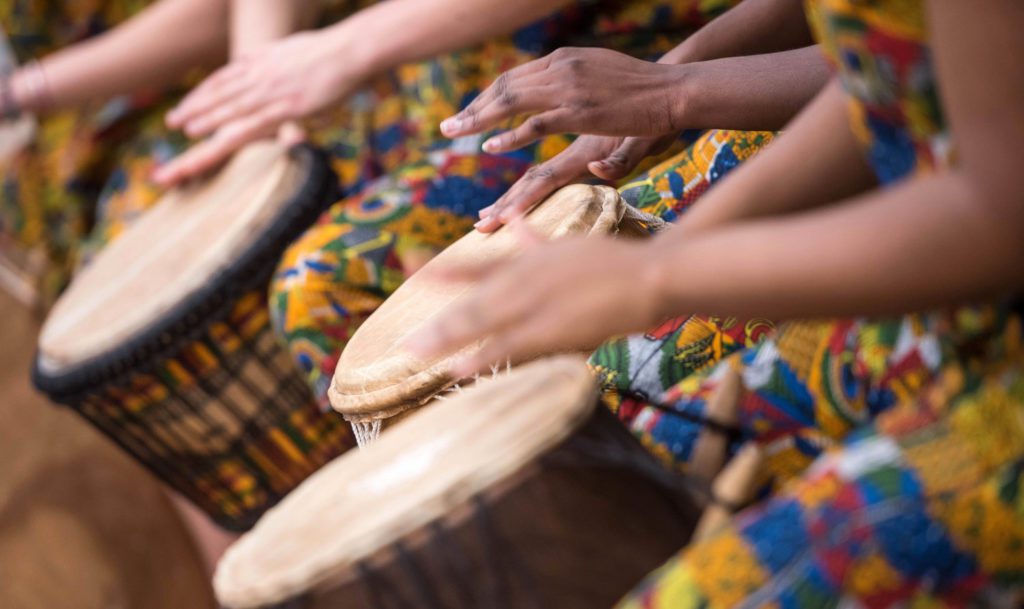Delivery mechanics from African folk music, such as call and response and syncopation have prominent influences in modern Black music
Call and Response
AFRICAN ORIGINS
Call-and-response is a compositional technique originated in Africa and especially prominent in Sub-Saharan African cultures. These cultures used the technique to connect with audiences at traditional public gatherings, such as baptisms, weddings, funerals, and religious conventions. Enslaved Africans carried this tradition to the Americas as work songs on plantations and in gospel music.
TODAY
In modern Black music, call-and-response in most immediately recognized as an element in traditional and popular gospel music, with the song leader singing and line and the choir and congregation answering. However, that is not its only use. It can also show a conversation between a vocal singing and an instrument, a notable technique of Louis Armstrong. In a more cultural than musical use, it can be used in chants. Strong examples being the religious phrase, “God is good” “all the time”, and in protests, “Black lives” “Matter”.
Syncopation
AFRICAN ORIGINS
Syncopation in African music is connected to percussive instruments like the djembe and the bones. Compared to classical Western music, where syncopation is often temporary, African syncopation is a constant, a regular staple. Syncopation is found all across the continent, from the Chimurengua in Zimbabwe to the Gnawa in Morocco. In the Americas, slave owners feared the communicative power drums possessed to convey messages and banned then, so enslaved Africans created syncopated rhythms by clapping and stomping
TODAY
Today, syncopation is a staple of popular American music. Common applications like the backbeat, also called the “rockbeat” in rock and blues music signify syncopation’s shift from being popular mainly in Black populations to now being recognized in white pop and rock music. It is a characteristic that shows the influence of African culture on American music and can occasionally be used to distinguish the time period in which a piece originates. While some historians make arguments denying the African influences and saying that rhythmic ragtime syncopation had been popular in Western music, others strongly contest that 20th century popular syncopated rhythms almost surely originated from African rhythms in jazz syncopation.


